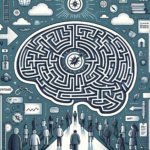
Staying Grounded: Essential Practices for Managing Anxiety Day-to-Day
Introduction
In an ever-busy world, where the pace of life seems to be constantly accelerating, anxiety has become a prevalent companion for many. It’s not just a fleeting emotion; it’s a full-blown condition that affects millions. The quest for mental equilibrium can feel daunting, but fear not! Staying Grounded: Essential Practices for Managing Anxiety Day-to-Day offers proven strategies to help you reclaim your peace.
Imagine waking up each day with a toolbox of techniques to combat anxiety before it spirals out of control. Here, we will delve into practical, everyday strategies that will empower you to manage anxiety effectively, ensuring that you can live your life with intention and joy.
The Importance of Staying Grounded
Being grounded is essential for mental clarity and emotional stability. When you are grounded, you are connected to your present moment, which allows you to manage emotions and reactions more effectively. This connection can mitigate feelings of anxiety, helping to alter the often overwhelming perception of life’s challenges.
Case Study: Emma’s Journey to Grounding
Emma, a 28-year-old marketing professional, struggled with anxiety for years. Her typical day involved racing thoughts and a perpetual sense of dread. After discovering essential grounding practices, she committed to integrating them into her daily routine. The result? A significant reduction in anxiety levels, improved focus at work, and, most importantly, a heightened sense of peace.
This article seeks to provide you with strategies reminiscent of Emma’s journey. Let’s explore essential practices that have the potential to transform your mental well-being.
Mindfulness and Meditation: Your Daily Sanctuary
What is Mindfulness?
Mindfulness is the practice of being present in the moment, an approach that can significantly alleviate anxiety. By training your mind to focus on the here and now, you break the cycle of worrying about the future or ruminating on the past.
Incorporating Meditation
- Start Small: Begin with just five minutes a day. You can gradually increase the time as you get more comfortable.
- Guided Sessions: Utilize apps like Headspace or Insight Timer to guide you through your meditation practice.
- Mindful Breathing: Take deep breaths, focusing solely on your breath. This practice calms the mind and reduces anxiety.
Table 1: Impact of Mindfulness on Anxiety Levels (in %)
| Mindfulness Practice | Decrease in Anxiety Levels (after 8 weeks) |
|---|---|
| Breathing Exercises | 25% |
| Guided Meditation | 35% |
| Mindful Walking | 30% |
Based on studies conducted by the American Psychological Association.
Analysis of Case Study: Emma and Mindfulness
Emma started with just five minutes of guided meditation each morning. Within weeks, she noticed that anxiety triggers, which once consumed her, began to lose their power. This practice became an integral part of her daily routine, effectively demonstrating how mindfulness can shift perspectives and improve mental health.
Physical Exercise: The Natural Antidote
Physical activity is not merely about fitness; it has profound impacts on mental health. Exercise releases endorphins, the body’s natural stress relievers, making it an essential practice within Staying Grounded: Essential Practices for Managing Anxiety Day-to-Day.
Types of Exercises to Incorporate
- Aerobic Workouts: Activities like running, cycling, or swimming for at least 30 minutes can drastically boost mood.
- Yoga: Combines physical movement, meditation, and breathing exercises, making it a triple-threat against anxiety.
- Strength Training: Engaging in weightlifting or body-weight exercises can enhance self-efficacy and resilience.
Case Study: Tom’s Transformation through Exercise
Tom, a 35-year-old lawyer, faced debilitating anxiety as he approached high-stakes court cases. After incorporating regular aerobic workouts and yoga into his routine, he noticed a remarkable reduction in anxiety. The physical challenge not only grounded him but also affirmed his competence and self-worth.
Daily Journaling: Unpacking Your Thoughts
Writing is a cathartic process that can help clarify thoughts and emotions. Journaling serves multiple functions, one of which is to externalize pent-up feelings.
How to Start Journaling
- Set a Regular Time: Choose a specific time each day to write.
- Prompts and Questions: Use prompts to guide your writing. For example, "What am I grateful for today?"
- Free Writing: Allow yourself to write freely without judgment.
Analysis of Journaling’s Impact
A study by the Journal of Clinical Psychology found that expressive writing can improve mental health outcomes significantly. Integrating journaling into personal routines can be a game-changer in managing anxiety.
Establishing Healthy Relationships
Surrounding yourself with supportive and understanding individuals can significantly impact your anxiety levels. Positive relationships provide a buffer against stress and a network of emotional support.
Building Your Support Network
- Communicate Openly: Share your feelings with trusted friends or family.
- Seek Professional Help: Therapists or support groups provide an environment to discuss feelings without judgment.
- Engage in Social Activities: Participation in group activities ensures a support system is in place.
Case Study: Lisa’s Experience with Relationships
Lisa, a 40-year-old teacher, found solace in reconnecting with her friends after years of isolation. She realized that opening up about her anxiety decreased feelings of loneliness, showcasing the healing power of community and connection.
Nutrition: Fueling Your Mind
What you eat can significantly impact your mental state. A balanced diet rich in whole foods is essential for good mental health.
Foods to Enhance Mental Well-Being
- Omega-3 Fatty Acids: Found in fish like salmon, walnuts, and flaxseeds, these are critical for brain health.
- Dark Leafy Greens: Spinach and kale are rich in folate, which has been linked to improved mood.
- Whole Grains: Foods like oats and quinoa stabilize blood sugar levels, reducing anxiety.
Creating a Balanced Meal Plan
To integrate these foods into your daily diet, aim for balanced meals that include protein, fiber, and healthy fats. Keeping a meal diary may help you understand how certain foods impact your mood and energy levels.
Relevance of Nutrition to Anxiety Management
Research consistently points to the link between diet and mental health. Following a nutrient-rich diet supports not only physical health but also emotional resilience.
Sleep: The Cornerstone of Mental Health
Quality sleep is foundational for mental well-being. Anxiety often disrupts sleep, creating a vicious cycle that is hard to break.
Strategies for Better Sleep Hygiene
- Maintain a Sleep Schedule: Go to bed and wake up at the same time daily.
- Create a Restful Environment: Keep your bedroom dark, cool, and quiet.
- Limit Screen Time: Avoid screens at least an hour before bedtime to promote melatonin production.
Case Study: Jake’s Sleep Journey
Jake, a 30-year-old tech worker, struggled with insomnia linked to anxiety. By adopting a consistent sleep schedule and engaging in pre-sleep relaxation techniques, he improved both his sleep quality and overall anxiety levels.
Conclusion
Managing anxiety doesn’t have to be an uphill battle. By Staying Grounded: Essential Practices for Managing Anxiety Day-to-Day, you can develop a toolkit of techniques to enhance your mental resilience. Embrace mindfulness, exercise, journaling, nourishing relationships, a balanced diet, and healthy sleep patterns to create a life filled with peace and purpose.
The journey toward mental wellness is a personal one, and these practices are stepping stones that can guide you toward your destination. No single approach works for everyone, so experiment with these practices and find what resonates with you.
Motivational Takeaway
Remember, you hold the power to transform your experience with anxiety. Start small, be gentle with yourself, and stay committed to your well-being. Your path to a grounded, anxiety-managed life begins today.
FAQs
1. How long does it take to see results from mindfulness and meditation?
Results vary from person to person; however, many individuals report feeling calmer after just a few sessions. Consistent practice often yields even more significant benefits over time.
2. Can exercise really reduce anxiety?
Yes! Exercise releases endorphins, which act as natural mood lifters, helping to combat anxiety and stress effectively.
3. Is journaling effective for everyone?
While not everyone may connect with journaling, it has proven effective for many as a tool for emotional expression and clarity.
4. What are some quick techniques for grounding in moments of high anxiety?
Techniques include deep breathing, focusing on your senses (e.g., identifying five things you can see, hear, and touch), or engaging in a quick mindfulness practice.
5. Can nutrition affect anxiety levels?
Absolutely! Consuming a balanced diet rich in whole foods can support mental health. Nutrient deficiencies can exacerbate anxiety, making a healthy diet essential.
This comprehensive guide serves as an empowering step toward mastering anxiety in your daily life. By integrating these foundational practices, you can stay grounded, embrace the moment, and cultivate a richer, more fulfilled existence.

















